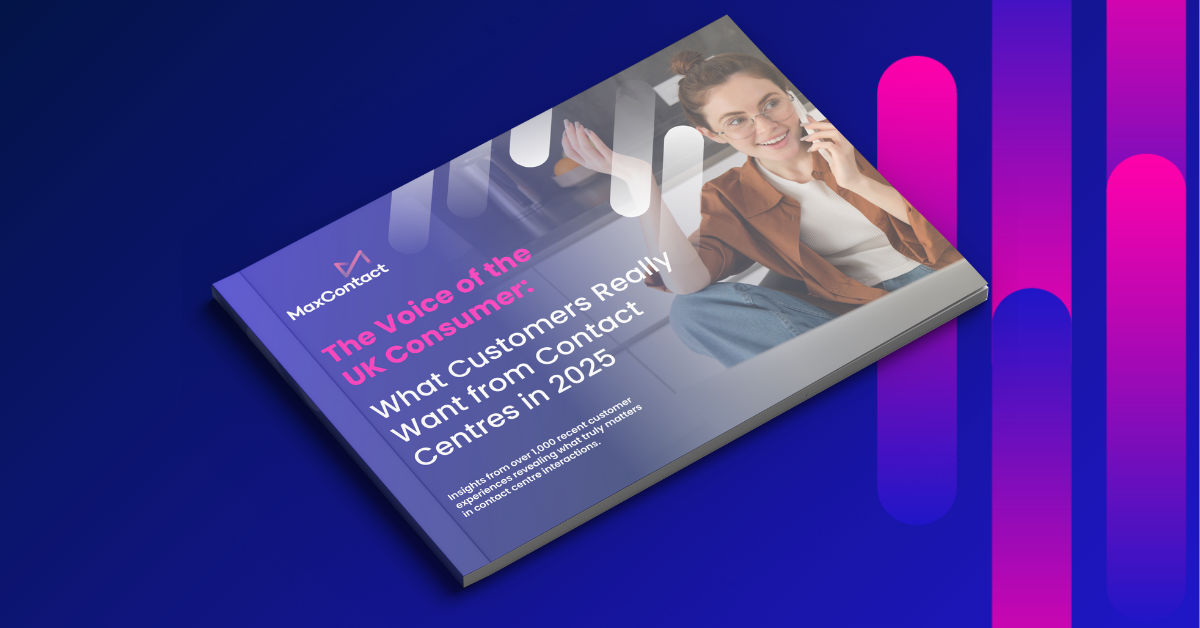Contents
As we close out 2024, it’s time to look ahead at what the coming year might bring for the contact centre industry. The sector has shown remarkable resilience and growth, with industry revenue reaching an estimated £3.2 billion in 2024, representing a compound annual growth rate (CAGR) of 5.1% over the past five years. This sustained growth, despite economic headwinds, demonstrates the vital role contact centres play in modern business operations. While the past year brought its share of challenges, it also showed us the adaptability of the sector.
Here’s our forecast for the key trends that will shape contact centres in 2025.
AI Enters the Value Creation Phase
If 2024 was about deploying AI solutions, 2025 will be the year of proving their worth. With current AI implementations showing efficiency improvements of around 25% (rather than the often-marketed 70-80%), organisations are becoming more pragmatic about their AI investments. The focus will shift dramatically from simply having AI capabilities to demonstrating measurable return on investment.
We expect to see several key developments in the AI space:
- More domain-specific AI models replacing general-purpose solutions
- Decreasing costs as AI technology becomes more efficient
- New applications focusing on hyper-personalisation and proactive customer engagement
- Real-time language translation becoming more accessible and affordable
- Improved analysis of customer interactions for training and quality assurance
However, the human element remains crucial. We anticipate contact centres finding a better balance between AI automation and human interaction, with technology being deployed strategically to give agents more time for complex, emotionally sensitive conversations.
The Evolution of Agent Roles
We’ll begin to see significant shifts in the contact centre agent role throughout 2025, as organisations respond to growing operational complexities. Research shows that typical UK contact centres expect their agents to juggle between five and ten different IT applications during or after customer calls – and that’s on top of standard office applications and web browsers.
This technological overload, combined with increasing customer expectations, is driving a fundamental shift in how we think about the agent role. Research indicates that customers are less satisfied with customer service interactions than ever before, despite the proliferation of new technologies. This paradox highlights the need for a new approach to agent development and deployment. Throughout 2025, we expect to see progressive changes in how agents work and the skills they need.
Key developments will include:
- Enhanced focus on emotional intelligence and complex problem-solving.
- Greater emphasis on using data insights to inform customer interactions
- New training approaches combining technical skills with soft skills
- More sophisticated performance metrics beyond traditional KPIs
- Increased focus on wellbeing and post-difficult-call support
Personalisation Meets Privacy
The drive for personalised customer experiences will continue, but with a crucial twist: finding the balance between customisation and privacy. Studies show that while 76% of consumers say personalised communications are a key factor in considering a brand, and 78% say such content makes them more likely to repurchase, 80% are concerned about how their data is being used. This tension will define how contact centres approach personalisation in 2025.
The key will be implementing what we call “respectful personalisation” – using customer data in ways that enhance service without crossing privacy boundaries. For example, acknowledging a customer’s upcoming holiday booking when they call about travel insurance is helpful; making assumptions about their personal life based on their purchase history is not.
Contact centres will need to:
- Develop clear frameworks for using customer data responsibly
- Implement personalisation that enhances rather than intrudes
- Create transparent policies about AI use in customer interactions
- Balance automation with customer preference for human interaction
- Establish clear opt-in/opt-out processes for data usage
Economic Pressures Drive Innovation
With continued economic challenges expected, 2025 will see contact centres getting creative about efficiency. The impact of the 2025 minimum wage increase to £12.21 per hour, combined with the National Insurance changes, has already pushed many organisations to reassess their operational models.
We anticipate:
- Further exploration of offshore and nearshore options
- Investment in technology that demonstrates clear cost benefits
- More sophisticated workforce management solutions
- Increased focus on first-contact resolution to reduce overall contact volumes
- Creative approaches to training and development that maximise resources
Hybrid Working 2.0
With current data showing that 98% of contact centre leaders expect hybrid working to be standard practice, we’re moving beyond basic remote working capabilities to more sophisticated operational models. After several years of experimentation, and with attrition rates in remote teams running 10% higher than those in hybrid or office-based teams, contact centres are implementing more nuanced approaches to hybrid working.
The focus in 2025 will be on solving the persistent challenges of remote work, particularly around training, culture, and team cohesion, including:
- AI-powered coaching and development platforms for remote agents
- Sophisticated workforce management tools that optimise hybrid team performance
- More nuanced approaches to training and development in hybrid environments
- Enhanced security protocols addressing the specific vulnerabilities of distributed teams
- Improved virtual collaboration tools
- New approaches to maintaining company culture in distributed environments
Data-Driven Decision Making
In 2023, the world generated a staggering 120 zettabytes of data, and this volume continues to grow exponentially. Contact centres are significant contributors to this data explosion, capturing thousands of customer interactions daily across voice, email, chat, and social channels. Yet many organisations are still only scratching the surface of what’s possible with this wealth of information. 2025 will see a dramatic shift in how contact centres approach data analytics.
With more sophisticated analytics tools available, 2025 will see a shift towards more data-informed operations:
- Better integration of cross-channel customer journey data
- More sophisticated prediction of contact volumes and resource needs
- Enhanced ability to identify vulnerable customers
- Improved measurement of customer effort and satisfaction
- Better tracking of resolution rates across channels
Regulatory Compliance and Security
The regulatory landscape continues to evolve rapidly, with new AI-specific regulations expected to join existing frameworks like Consumer Duty in shaping contact centre operations. The increasing frequency of security incidents – with some recent breaches affecting hundreds of millions of customers – has made security a board-level priority for many organisations.
As technology continues to evolve, so too will the regulatory landscape. We expect:
- New AI-specific regulations and compliance requirements
- Enhanced data protection measures, especially for AI applications and hybrid working environments
- Stricter requirements around customer vulnerability identification and support
- More rigorous security protocols for third-party integrations
Looking Ahead
2025 promises to be a year of practical innovation, where contact centres focus on getting real value from their technological investments while adapting to economic pressures. Success will come from finding the right balance between efficiency and effectiveness, automation and human interaction, personalisation and privacy.
The winners will be those who can navigate these competing demands while keeping sight of what matters most: delivering excellent customer service in a way that’s sustainable for both the business and its employees.
Key Areas to Watch:
- The evolution of AI from novelty to necessity
- The changing role of contact centre agents
- The refinement of hybrid working models
- The balance between cost efficiency and service quality
- The development of new industry regulations
- The impact of economic pressures on service delivery
While challenges certainly lie ahead, the contact centre industry has repeatedly shown its ability to adapt and innovate. We expect 2025 to be no different, as organisations continue to evolve their approach to customer service delivery.
Remember, the most successful contact centres will be those that can maintain their agility while staying true to their core mission of providing excellent customer service. The technology and tools may change, but the fundamental importance of human connection in customer interactions remains constant.





